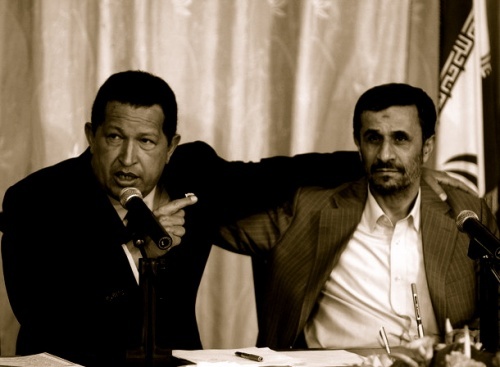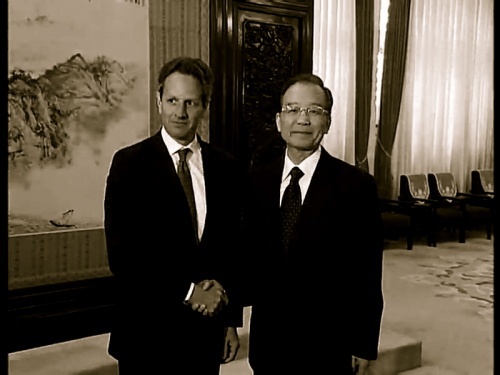

Assassinations and diplomacy rather than blockades and air strikes are the methodology of this conflict. Four Iranian nuclear scientists have been assassinated in last 2 years. Assassination and computer worms are probably viewed by some as more effective than direct air strikes. Israel’s security services had hinted that 2012 might deliver anonymous intercession to forestall Iran’s nuclear program. US Secretary of State Hillary Clinton denied US involvement. The timing for suck attack indeed is a bit awkward, dangerous for a US citizen just the day before sentenced by an Iranian Court for spying. Whatever effect such covert executions and other methods may have on Iran’s nuclear program, they do certainly give legitimacy, deserved or not, to claims of spying by Tehran authorities.
In Search of Global Allies/Friends:
In the meantime, both Tehran and Washington have already started their own diplomatic lobbying. In effort to forestall and/or better resist heightened sanctions, Iranian President Mahmud Ahmadinejad has been on tour of Latin American friends/sympathizers, Venezuela, Cuba, Nicaragua and Ecuador. Similarly, US Treasury Secretary Timothy Geithner has been visiting China and Japan to press for tighter sanctions, particularly to curb Iranian petroleum purchases.
Both missions are more about show than substance. Venezuela, Cuba, Nicaragua nor Ecuador can have much effect on the debate regarding sanctions on Iran and thus cannot be much of assistance to President Ahmadinejad, except for the photo opportunity. None of them is a big consumer and 2 are themselves producers. Their standing at the United Nations is not significant enough to counter US and allies especially as the IAEA (International Atomic Energy Agency) continues to express doubts about safeguards and/or motives regarding Iran’s nuclear program – military or legitimate energy and medicine objectives.
China & Japan Can/Will Not Support Cut-off of Iranian Oil and Closure of Strait of Hormuz:
On the other side of the world, China is either unwilling or unable to forego Iranian oil. (Read: -"China as Top Threat" -
diplomaticallyincorrect.org/films/blog_post/china-as-top-threat-by-ambassador-mo/43429). Japan gets almost ¾ of its oil from the Persian/Arab Gulf – although a fraction of that from Iran directly (a bit more than 10%). Tokyo cannot afford to forego Iranian oil nor can it support a broad cut-off. Japan needs all the oil it can get, especially as nuclear power is under review/on hold after the Fukushima nuclear catastrophe. More to the point, Japan does not want to see any cut-off of Iranian oil that might leave Tehran with only one card to play – effectively shut down the Strait of Hormuz.
A Diplomatic/Sanctions Game of Attrition - Russian Roulette?:
Both Ahmadinejad and Geithner will return to their capitals with many words but few promises offered. However, the ultimate consequence of this may be to thwart any direct military action by either Tehran or Washington. Neither can afford it, and especially the developed world and China view blockades and military action as direct threats to economic health. Japan has apparently just now agreed to some reduction of purchases from Iran; however this is more likely to be symbolic and China will soak up any Iranian oil not sold. China may even seek to exploit the gamesmanship by negotiating purchases of Iranian oil at substantial discounts if US allies decrease theirs. However, neither the US nor Iran will find many diplomatic friends globally through a military escalation at the Strait of Hormuz. In the short term, it could incite short lived oil price spike but a much longer, durable and sticky global economic recession. (Read: - “How Iran Affects Oil Prices”
diplomaticallyincorrect.org/films/blog_post/how-iran-affects-oil-prices-by-ambassador-mo/43204)
Washington may be pressing with sanctions though know that it will only get a half loaf of bread (or effect) that it desires. A complete cut-off would be damaging to Iran, but also US allies and global economic health. Squeezing Iran though on its range of buyers and most likely price received would inflict economic pain and perhaps detract financial flexibility for the regime and military. However, it is not likely to have a decisive impact on curtailing Iran’s nuclear program. Which brings us back to the diplomacy of cloak and dagger – assassination and technology/cyber war.
By Ambassador Muhamed Sacirbey
Facebook = Become a Fan at “Diplomatically Incorrect”
Twitter – Follow us at DiplomaticallyX
War Crimes Justice Channel -
diplomaticallyincorrect.org/c/war-crimes-justice



